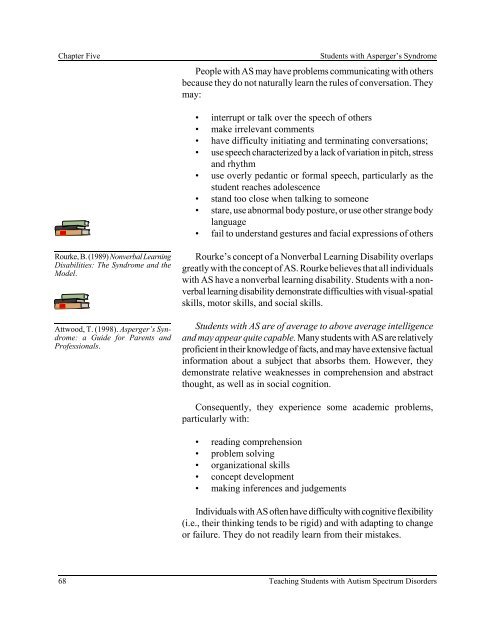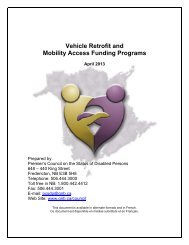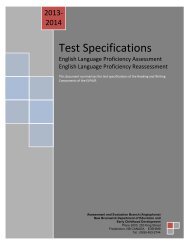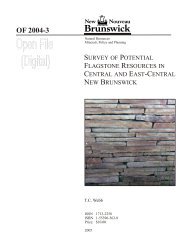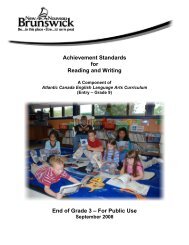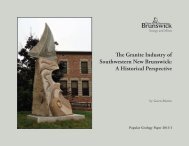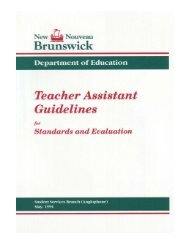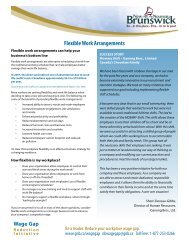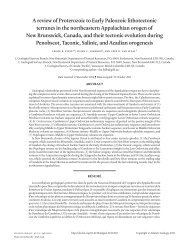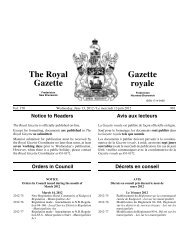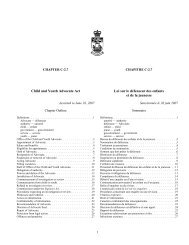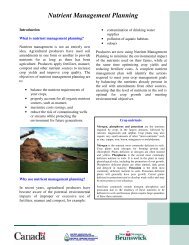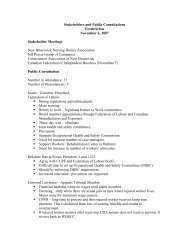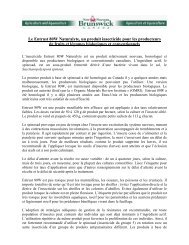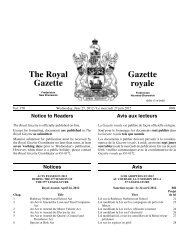Teaching Students with Autism Spectrum Disorders
Teaching Students with Autism Spectrum Disorders
Teaching Students with Autism Spectrum Disorders
You also want an ePaper? Increase the reach of your titles
YUMPU automatically turns print PDFs into web optimized ePapers that Google loves.
Chapter Five <strong>Students</strong> <strong>with</strong> Asperger’s Syndrome<br />
Rourke, B. (1989) Nonverbal Learning<br />
Disabilities: The Syndrome and the<br />
Model.<br />
Attwood, T. (1998). Asperger’s Syndrome:<br />
a Guide for Parents and<br />
Professionals.<br />
People <strong>with</strong> AS may have problems communicating <strong>with</strong> others<br />
because they do not naturally learn the rules of conversation. They<br />
may:<br />
• interrupt or talk over the speech of others<br />
• make irrelevant comments<br />
• have difficulty initiating and terminating conversations;<br />
• use speech characterized by a lack of variation in pitch, stress<br />
and rhythm<br />
• use overly pedantic or formal speech, particularly as the<br />
student reaches adolescence<br />
• stand too close when talking to someone<br />
• stare, use abnormal body posture, or use other strange body<br />
language<br />
• fail to understand gestures and facial expressions of others<br />
Rourke’s concept of a Nonverbal Learning Disability overlaps<br />
greatly <strong>with</strong> the concept of AS. Rourke believes that all individuals<br />
<strong>with</strong> AS have a nonverbal learning disability. <strong>Students</strong> <strong>with</strong> a nonverbal<br />
learning disability demonstrate difficulties <strong>with</strong> visual-spatial<br />
skills, motor skills, and social skills.<br />
<strong>Students</strong> <strong>with</strong> AS are of average to above average intelligence<br />
and may appear quite capable. Many students <strong>with</strong> AS are relatively<br />
proficient in their knowledge of facts, and may have extensive factual<br />
information about a subject that absorbs them. However, they<br />
demonstrate relative weaknesses in comprehension and abstract<br />
thought, as well as in social cognition.<br />
Consequently, they experience some academic problems,<br />
particularly <strong>with</strong>:<br />
• reading comprehension<br />
• problem solving<br />
• organizational skills<br />
• concept development<br />
• making inferences and judgements<br />
Individuals <strong>with</strong> AS often have difficulty <strong>with</strong> cognitive flexibility<br />
(i.e., their thinking tends to be rigid) and <strong>with</strong> adapting to change<br />
or failure. They do not readily learn from their mistakes.<br />
68 <strong>Teaching</strong> <strong>Students</strong> <strong>with</strong> <strong>Autism</strong> <strong>Spectrum</strong> <strong>Disorders</strong>


